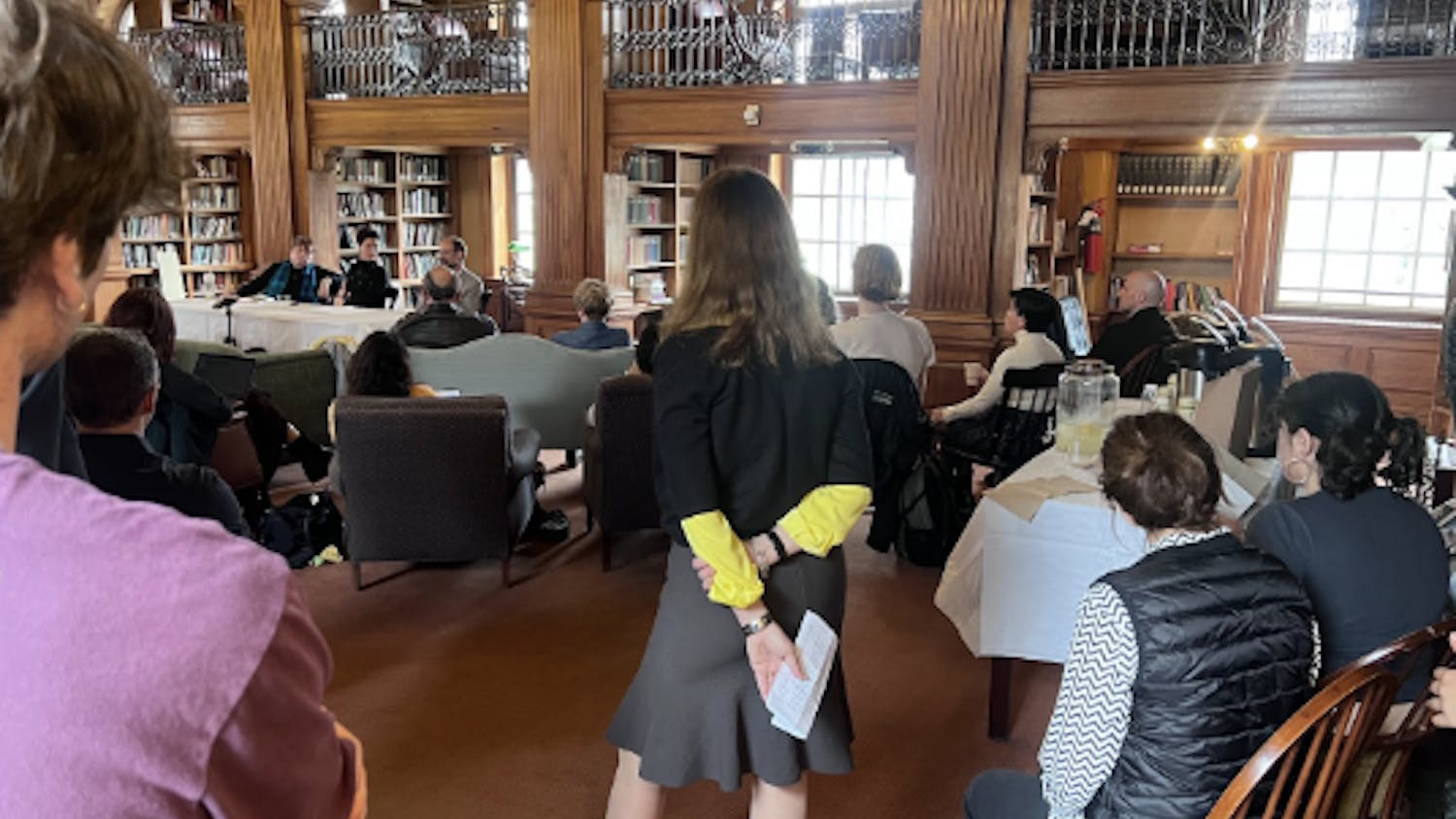When he is not blogging about epic fantasy or spending time outside in Vermont, author and blogger Brian Staveley ’98 works on his trilogy “Chronicle of the Unhewn Throne.” The second book in the series, “The Providence of Fire” comes out Jan. 13.
How were you involved in writing at Dartmouth?
BS: I spent most of my time divided between doing a lot of writing and doing a lot of rock climbing. Those were kind of the two main, main foci of my time there, and it was great. I mostly wrote and studied poetry, and, obviously, I’m now writing epic fantasy, which is kind of a different end of the literary spectrum. I went through pretty much the full slate of creative writing courses. Even the poetry classes were really good training for the kind of work that I’m doing now, not because I learned how to write fantasy or how to create epic plots and authentic worlds, but because I got really comfortable handling language. I spent a long time writing poetry before I shifted over into writing genre fiction. Poetry and epic fantasy are pretty different.
What caused the shift?
BS: It’s impossible or almost impossible to make a living just writing poetry. Even very well-respected, well-regarded poets teach at the same time, which is great. I taught high school for over ten years. I really enjoyed that job, but I wanted to try to make a career out of writing, and I thought I’m probably not going to do that publishing small books of poetry. So I went back to fantasy, which was a love of mine when I was a kid. I thought that’s a genre with more commercial possibility but it’s also one that I’m excited about and that I know really how, where I can contribute a little something and sort of take part in this long big tradition of fantasy and English.
Your new book “The Providence of Fire” is the second in a trilogy. Can you describe what it specifically and the trilogy more generally is about?
BS: “The Emperor’s Blades” is about three adult children of a murdered emperor. One is a monk, one is a special forces soldier and one is a politician. They’re trying to figure out who killed their father and why and, in time, try to stay alive themselves. The second book, they’re really off to the races. The relationship between those three characters becomes much tougher and more tangled. And so, as they say, the plot thickens. That’s in the second book. I’ve just finished the first draft of the third book now, and I can see where it’s all headed.
I had a pretty detailed outline, not just of three books but seven. When my agent sold my book to Tor, which is my publisher, my editor there said “Well, there’s no way we’re going to sign you on to write seven books. You’re an unknown author with no history of publishing. You can have three books and you can like it.” I said “Yes, absolutely. Three books sounds great, and I will like it.” I’m incredibly grateful for that in retrospect because just writing a trilogy proved a really interesting challenge. I had plans within plans and all of them have changed over the course of working on this. I’m a compulsive outliner who ignores his own outlines.
What has been the biggest challenge of writing the trilogy?
BS: One thing about writing a trilogy that is really tough is that once the book one has gone to press, you can’t change anything in it. You have to put a book to print without having the whole [trilogy] finished, which creates an interesting challenge. That said, that can be a fun puzzle. That’s been tricky, writing a series like that. The other thing that I didn’t anticipate is just how much of the job is not actually writing. If you want to actually sell books, you have to go to readings, you need to have a social media presence on Twitter and Facebook, you need to do interviews, you need to do radio shows. That’s really fun, but it’s also incredibly time-consuming. There are days where I sit down to work at 8 in the morning and then I look at the clock and realize it’s three and I haven’t actually written any of my book. I’ve just been writing blog posts or doing interviews or setting up some kind of promotional thing. That’s been a steep learning curve, a really interesting one, but something I didn’t really anticipate.
Why did you start blogging? How has it informed your work?
BS: The blog was a direct offshoot of wanting to try to make a career of this. What I wanted was just to start to get my name out there in some way. It’s a very difficult balance when you’re trying to promote your work in your writing because that gets irritating really fast to people. The goal is to find a way to get your name out there that is also interesting and entertaining to other people. I thought I’d try to write a blog about the writing process. If you skim through the blog posts, you won’t see any mentions of the fact I’m working on my own book. Maybe there are a couple mentions, but they are very sparse. It really helped me in my own writing because it’s forced me to take questions that I’ve only thought about vaguely and put my thoughts down. It really put a finer point on some of my thoughts. It’s been useful. It’s been fun. Sometimes, when I can’t write another word of the book, I can get out a whole other blog post. It’s a different muscle.
What advice would you give Dartmouth students who want to go into writing?
BS: Thinking about writing, talking about writing, hoping to write, planning to write — none of that is writing. Only writing is writing. If you want to make a living at it, you probably want to be aware of and curious about the market. This isn’t to say you should write for the market, but it’s well worth being aware of how that market works.
This interview has been edited and condensed.



